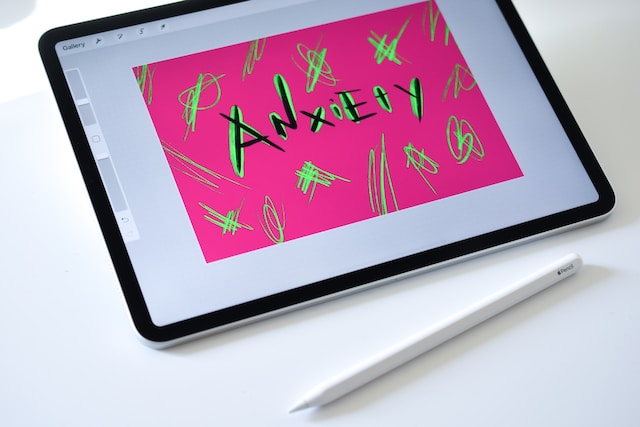How to Support Staff from Ethnically Diverse Backgrounds this Mental Health Week
Anxiety is the theme of Mental Health Awareness Week 2023. We all feel anxious from time to time. Anxiety is a natural response to the uncertain world around us. When we look at the experience of your staff from the global majority (those with ethnically diverse backgrounds) in the workplace, there are many possible reasons why they may be experiencing anxiety in the UK workplace. Some of these reasons include:
1. Discrimination and prejudice: There may be instances where staff members face discrimination or prejudice in the workplace due to their ethnicity or cultural background. This can lead to feelings of anxiety and stress, as they may feel isolated and unsupported.
2. Lack of cultural understanding: A lack of inclusion in the workplace may make staff from the global majority feel like they don’t quite fit in or that their culture is not being understood or respected by their colleagues. This can lead to anxiety and feelings of being misunderstood.
3. Language barriers: If English is not their first language, staff members from the global majority may find it difficult to be understood due to accent bias or understand the nuances of workplace culture. This can lead to feelings of anxiety and frustration.
4. Microaggressions: Staff members from ethnically diverse backgrounds may experience microaggressions – subtle comments or actions that are discriminatory or offensive. These can have a cumulative effect and lead to feelings of anxiety and stress.
As a leader, you must acknowledge the existence of these challenges and commit yourself to creating a more just and equitable society. You can do this by taking active steps towards creating an inclusive and accepting work environment where everyone’s mental health is supported. This can be done by creating support systems for employees with mental health challenges, addressing the root causes of discrimination and racism, and providing access to mental health resources that are culturally sensitive and nuanced.
It is also important to acknowledge that seeking mental health support is still stigmatized within certain ethnic communities. As a leader, you must strive to change this by acknowledging and addressing the unique experiences and expectations that each culture brings. This can be done through education and training and ensuring that mental health support is accessible and tailored to the diverse needs of your employees.
We need to work together as leaders to create a society where mental health is valued equally, irrespective of race or socio-economic status. In doing so, we will move towards a future where everyone is treated with dignity, respect and kindness.
Let’s work together to end the stigma around mental health and create a society where we can all thrive.
Here are 30 tips on how to support colleagues from the global majority with anxiety at work this mental health awareness week:
1. Create a safe and inclusive work environment where people feel comfortable discussing their mental health.
2. Provide information and resources on mental health, including coping strategies.
3. Train and educate your team on how they can support colleagues with anxiety.
4. Encourage employees to take breaks and prioritise self-care.
5. Be aware of your own biases and how they may affect your interactions with colleagues from diverse backgrounds.
6. Foster a culture of empathy and understanding.
7. Provide access to mental health services and resources.
8. Allow flexible working arrangements where possible.
9. Offer support in the form of time off or reduced workload.
10. Avoid making assumptions about someone’s mental health based on their background or cultural identity.
11. Respect cultural differences and values when supporting colleagues with anxiety.
12. Create opportunities for open dialogue about mental health.
13. Encourage colleagues to seek help and provide guidance on how to do so.
14. Promote mental health awareness training and resources.
15. Foster a culture of support and mutual respect.
16. Offer a safe and confidential space for colleagues to talk about their mental health.
17. Encourage employees to prioritise self-care, such as exercise, social support, and mindfulness.
18. Provide access to employee assistance programs or counselling services.
19. Work with management and HR to ensure policies and procedures support mental health and well-being in the workplace.
20. Ensure that employee benefits include mental health coverage.
21. Offer peer support groups for employees with anxiety.
22. Provide access to mental health resources in different languages.
23. Recognize and celebrate the strengths and contributions of colleagues from diverse backgrounds.
24. Avoid stigmatising language and promote positive, supportive language.
25. Foster a culture of openness and non-judgment.
26. Offer accommodations for employees with anxiety, such as flexible work hours or adjustments to workstations.
27. Provide access to mental health support in remote or virtual work settings.
28. Encourage self-advocacy and help employees to speak up when they need support.
29. Provide regular mental health check-ins with team members.
30. Celebrate diversity and promote an inclusive, supportive work environment for all colleagues.
Remember, dealing with anxiety can be challenging, and everyone copes in different ways. By showing empathy and being supportive, you can help your colleagues feel valued and supported.
About the author: Jenny Garrett OBE is an award-winning career coach, author and leadership trainer. Together with her team, they deliver impactful development to support women and those from ethnically diverse backgrounds to progress at work, as well as supporting majority group leaders to make inclusion happen. She is also co founder of a social enterprise Rocking Ur Teens which connects corporates with a pipeline of future talent. Jenny’s latest practical and empowering book is Equality vs Equity, tackling issues of Race in the workplace.
This blog has been kindly repurposed and you can read the original here.
